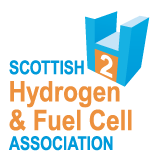Member Directory
University of Edinburgh
The Institute for Energy Systems (IES) is one of five multi-disciplinary research institutes within the School of Engineering and Electronics at the University of Edinburgh. The head of IES is Professor Robin Wallace and the formal divisions of activity are as follows: Marine Energy and Coastal Defence led by Professor Ian Bryden; Power Systems Operation and Control led by Professor Janusz Bialek, Machines and Power Electronics led by Dr Markus Mueller; and Energy and Climate Change led by Professor Rebecca Barthelmie.
With 13 academic staff, 11 research staff and over 30 postgraduate students, IES leads the EPSRC-funded Supergen Marine Energy Consortium (Lead and Finance Hub). It is a partner in the EPSRC SuperGen FlexNet and AMPerES consortia. It was selected to co-host the Research Councils' UK Energy Research Centre (UKERC), with responsibility for the theme Future Sources of Energy. The current research grant portfolio at IES amounts to about £5.5M. Most recently IES became one of five Joint Research Institutes (JRI) in the Edinburgh Research Partnership which combines research skills in Edinburgh and Heriot-Watt universities. This increases the JRI in Energy to 20 academic staff, 15 research staff and over 40 postgraduate students.
Drs Pritchard and Mignard carry out research into the utilisation of marine and other renewable energy, and in particular the storage, chemical conversion and transport of marine energy. We are evaluating the technical and economic feasibility of the electrolysis of (sea)water to produce hydrogen from low-cost, zero-carbon electricity supplies derived offshore; and its further conversion onshore to liquid fuel (eg methanol) utilising CO2 captured from combustion, as means of circumventing the intermittency of the marine energy. The technology and economics of hydrogen storage are compared with those of liquid fuels. Production and storage of other chemical energy vectors, and the utilisation of coproduced oxygen, are also being evaluated. This involves modelling process conditions, flowsheeting and mass/energy balances for hydrogen production, its storage and its reaction to liquid fuel. The possible advantages of combining grid supply with electrolysis facilities are also being investigated.

